- What We Do
- Agriculture and Food Security
- Democracy, Human Rights and Governance
- Economic Growth and Trade
- Education
- Environment and Global Climate Change
- Gender Equality and Women's Empowerment
- Global Health
- Humanitarian Assistance
- Transformation at USAID
- Water and Sanitation
- Working in Crises and Conflict
- U.S. Global Development Lab
Speeches Shim
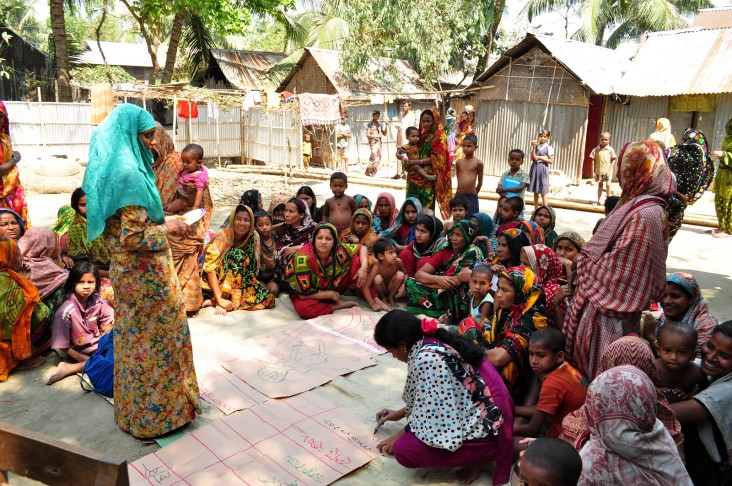
Interventions which directly affect knowledge, attitudes, behavior, and social norms that influence health or development outcomes, known collectively as social and behavior change (SBC) interventions, are vital to the success of the U.S. Agency for International Development’s (USAID) global health programs. In USAID’s 25 maternal and child health priority countries, millions of lives could be saved through social and behavior change interventions by 2020.
Simple behaviors practiced at the individual, household, and community levels can save lives and improve health outcomes. Families and health care workers who are able to integrate these healthy behaviors into their communities ensure the sustainability of USAID’s maternal and child survival efforts beyond our development assistance.
USAID’s Response
USAID’s maternal and child health social and behavior change programs are guided by Accelerator Behaviors—behaviors with the most potential to reduce the risk of preventable maternal and child deaths and also have low uptake in a particular environment. These behaviors maximize investments, accelerate progress on maternal and child survival, and strengthen health programs’ long-term sustainability.
Care for Pneumonia
Treatment for Diarrhea
Essential Newborn Care
Care for Newborn Illness
Full course of Immunizations
Early initiation of Breastfeeding
Exclusive Breastfeeding
Complementary Feeding
Insecticide-treated New Use
Intermittent Preventative Treatment of Malaria in Pregnancy
Care for Malaria
Adolescent First Birth
Birth Spacing
Antenatal Care
Delivery in Health Facility
Handwashing with Soap
Safe Disposal of Human Feces
Safe Drinking Water
USAID’s social and behavior change flagship programs work in close collaboration to increase the practices of priority health behaviors. These projects’ approaches to maternal and child health enhance the impact and sustainability of health service delivery and other development programs by positively shifting health-seeking behaviors, conducting research, improving provider behaviors, and fostering supportive social norms.
USAID's Impact
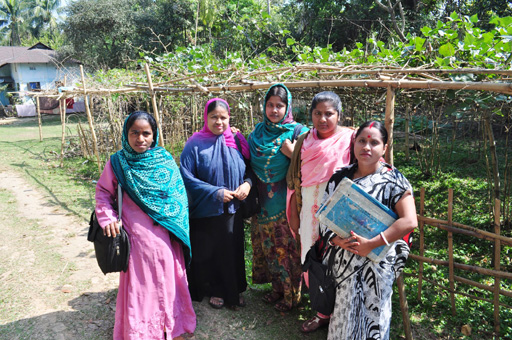
Field worker credibility as the first point of contact for general health increased by 41 percent in Bangladesh, as a result of a USAID-supported SBCC eToolkit.
In Bangladesh, through Health Communication Capacity Collaborative (HC3), USAID designed a comprehensive approach to strengthen the knowledge and skills within the Bangladesh Ministry of Health and Family Welfare. As a result, Bangladesh’s first national comprehensive Health, Nutrition and Population social and behavior change communication strategy was launched in 2016, as well as an eToolkit for health field workers. A pilot study found that using the eToolkit increased field worker credibility as the first point of contact for information on general health (from 18 to 59 percent), family planning (from 38 to 54 percent) and nutrition (from 29 to 50 percent). Photo: Amy Fowler/USAID
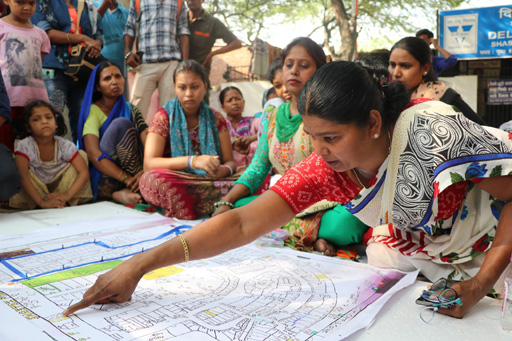
362 cities in India are certified as open defecation free as a result of a USAID-supported sanitation campaign.
In India, USAID supports Swachh Bharat Mission (SBM), the “Clean India” campaign, by providing technical assistance to the Ministry of Urban Development. This effort has resulted in over 400 cities being declared open defecation free, with 362 certified by an independent monitoring organization. Almost 100,000 people have registered for Swachh Bharat Mission’s e-learning platform and more than 8,000 sanitation complaints reported through the Mission’s mobile app have been resolved. Photo: Meenakshi Dalal/USAID
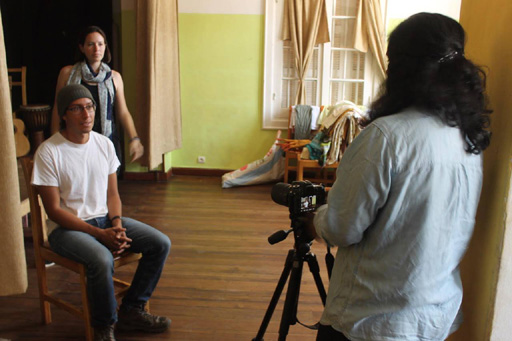
USAID’s partnership with the Peace Corps helps promote healthy behaviors in 12 USAID maternal and child health priority countries.
In 2018, Peace Corps Volunteers in Madagascar, with support from USAID, created a simple video that highlights the importance of exclusive breastfeeding. This video is an innovative and accessible format to educate women, their partners, and communities on the importance of breastfeeding and dispel misinformation, especially among rural populations in Madagascar with limited access to education. Watch the video here. Photo: Peace Corps/Madagascar
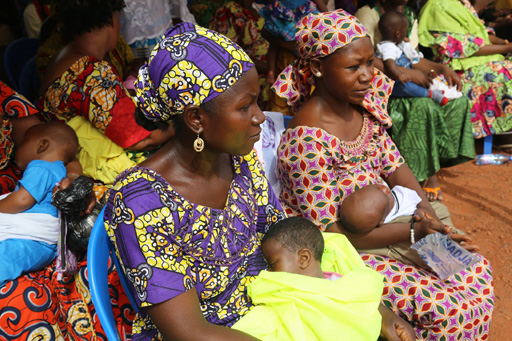
In the last year, USAID partnered with 212 religious leaders in Mali to help advocate for healthy behaviors like the healthy timing and spacing of pregnancy.
Healthy timing and spacing of pregnancies could avert 1.4 million child deaths each year in USAID’s maternal and child health priority countries. Through USAID’s support, religious leaders learn about the promotion of healthy behaviors and the impact they can have on the health of their communities. Religious leaders then develop their own model for educating about the importance of caring for children and about how to make informed decisions as a couple about the health of their family. Learn more. Photo: Anastasia Sogodogo/USAID Mali
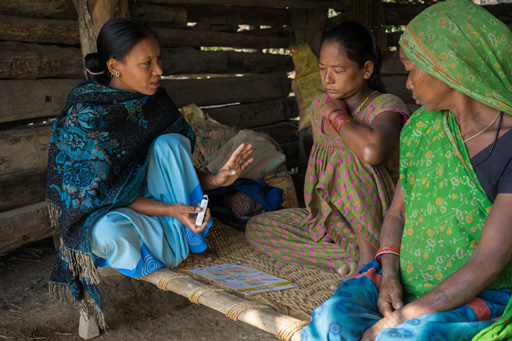
USAID partnered with Nepal’s Ministry of Health to scale-up an antiseptic gel that can decrease newborn infections by 68 percent.
The Chlorhexidine “Navi” Care Program supports Nepal’s Ministry of Health and Population to scale-up the use of chlorhexidine, an umbilical cord antiseptic gel to prevent newborn infection, to all 75 districts. In Nepal, the use of this simple antiseptic has decreased newborn deaths by 24 percent and newborn infections by 68 percent. Traditional umbilical cord cutting practices involve using a sickle to cut the cord and applying mustard seed oil around the navel. USAID’s support in Nepal helps community health volunteers to educate communities about the benefits of using chlorhexidine on the umbilical stump. Photo credit: Thomas Christofoletti/USAID
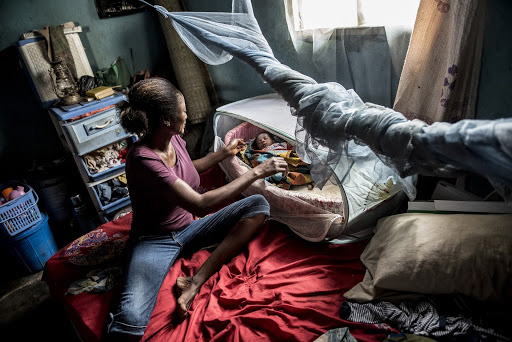
28,224 children under 5-years-old with malaria symptoms in Nigeria were referred to testing and treatment by community health workers.
In Nigeria, USAID-supported Health Communication Capacity Collaborative (HC3) worked to increase the use of malaria prevention and treatment measures, including community outreach activities outlining the symptoms of malaria and encouraging parents to act as soon as symptoms arose. As a result, 28,224 children under 5-years-old with a fever were referred to testing and treatment by community health workers. Photo credit: Karen Kasmauski/MCSP
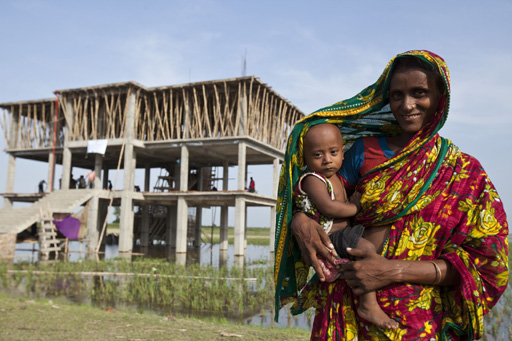
In 2017, USAID helped 76 million women and children access essential — and often lifesaving — health services.
USAID is working with partners to scale up what works to save lives, and we're reporting back annually on progress. Check out the 2018 Acting on the Call report for more information.
RELATED SOURCES
- Guide: Social and Behavior Change Programs for Ending Preventable Child and Maternal Deaths
- USAID Behavioral Integration Guidance webpage
- Social and Behavior Change for Ending Preventable Child and Maternal Deaths fact sheet [PDF, 491KB]
- USAID Maternal and Child Health
- Breakthrough RESEARCH and Breakthrough ACTION

Comment
Make a general inquiry or suggest an improvement.